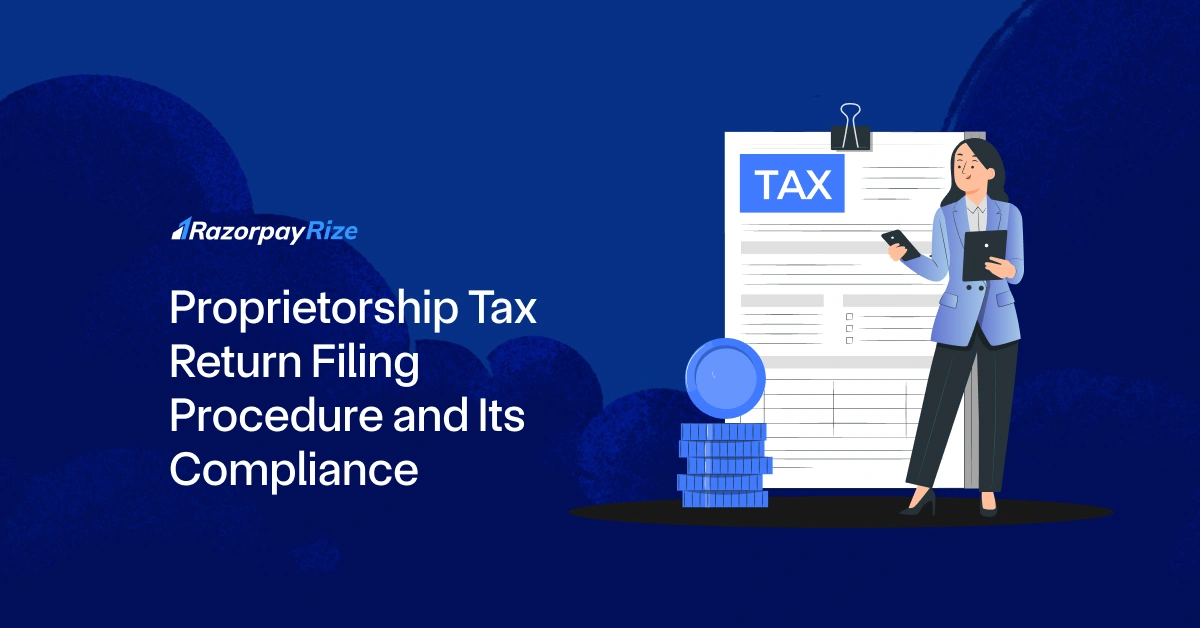Starting a business in India involves more than just registering a company name and opening a bank account. One of the most important legal steps for companies with share capital is obtaining a Certificate of Commencement of Business, as mandated by the Companies Act, 2013.
This certificate ensures that the company has met all preliminary legal requirements and is authorised to begin operations. It also helps maintain transparency, prevent fraudulent incorporations, and validate a company’s legal status in the eyes of regulators and stakeholders.
In this blog, we’ll walk you through everything you need to know about the Certificate of Commencement of Business- including its definition, significance, legal background, eligibility, documents required, filing procedure, and the consequences of non-compliance.
Table of Contents
What is a Certificate of Commencement of Business?
The Certificate of Commencement of Business is a mandatory legal document that certain companies in India must obtain before they start their business activities. It is issued by the Registrar of Companies (ROC) under the Companies Act of 2013, and applies specifically to public and private companies limited by shares.
Beyond legal compliance, this certificate also plays a big role in establishing trust. It shows investors, banks, and stakeholders that your company has met all foundational requirements and is operating within the bounds of the law. It also helps prevent fraudulent incorporations by ensuring that companies follow due process from the start.
Significance of Commencement of Business Certificate
The Certificate of Commencement of Business serves multiple purposes:
- Legal Authorisation: It acts as formal approval for a company to start its operations.
- Regulatory Compliance: Ensures adherence to the provisions of the Companies Act of 2013.
- Prevention of Fraud: Minimises the risk of shell companies or fraudulent incorporations.
- Credibility: Enhances trust with investors, financial institutions, and stakeholders.
- Access to Funds: Allows the company to exercise borrowing powers and raise capital legally.
Commencement of Business under Companies Act 2013 – Old Act and Procedure
Under the Companies Act, 2013, companies with share capital cannot begin operations immediately after incorporation. While companies without share capital may commence business right after receiving the Certificate of Incorporation, those with share capital must secure a Certificate of Commencement of Business as per Section 11 of the Act and Rule 24 of the Companies (Incorporation) Rules, 2014.
This requirement is applicable to all newly formed public and private companies with share capital, highlighting the importance of meeting initial capital commitments and completing registration protocols before beginning operations or seeking external financing.
Position Under Erstwhile Companies Act, 1956
Previously, the Companies Act of 1956 governed the commencement of business for companies in India. Under this law, only public companies with share capital were required to obtain a Certificate of Commencement of Business. Private companies, on the other hand, were exempt and could begin operations immediately after incorporation.
The 2013 Act introduced more stringent rules, bringing private companies with share capital under the same requirements to enhance transparency and accountability.
Certificate of Commencement of Business Under Companies Act 2013
To obtain this certificate under the current law, companies must meet two critical requirements:
- Declaration by a Director: The director must declare that every subscriber to the memorandum has paid for the shares they subscribed to.
- Registered Office Verification: The company must file verification of its registered office with the ROC.
Only after fulfilling these conditions can the company apply for the certificate and begin lawful operations.
Eligibility Criteria for Commencement of Business Certificate
The Certificate of Commencement of Business (COB) is mandatory for the following categories of companies:
- Companies Incorporated on or after November 2, 2018: Any company registered after this date is required to obtain the COB Certificate within 180 days from the date of incorporation.
- Companies with Share Capital: Regardless of industry or business type, all companies with share capital must apply for and secure the COB Certificate before starting operations.
Which Company is Not Required to File a Certificate of Commencement of Business?
The following categories of companies are exempt from filing for the Certificate of Commencement of Business. These include:
- Companies Incorporated Before November 2, 2018: This exemption applies to companies that were established prior to the implementation of the Companies (Amendment) Ordinance, 2018, specifically before November 2, 2018.
- Companies Registered After November 2, 2018, Without Share Capital: Companies that were incorporated after November 2, 2018, but do not have a share capital structure, meaning they haven’t issued any shares, are also exempt from obtaining the COB Certificate.
Documents Required to Obtain Commencement of Business Certificate in India
To apply for the Certificate of Commencement of Business, companies must submit the following documents:
- Form INC-20A: A declaration filed by a director.
- Board Resolution: Approving the commencement of business.
- Proof of Capital Subscription: Evidence that all subscribers have paid their share value.
- Registered Office Proof: Utility bill or rental agreement confirming office address.
- Certificate of Incorporation: Issued by the ROC.
Application Process for Commencement of Business Certificate
Here’s a detailed walkthrough:
- Log in to the MCA Portal
Visit the official website of the Ministry of Corporate Affairs (MCA). Log into the MCA portal using your registered credentials (User ID and Password). If you are not registered yet, you must create an account first. - Navigate to the e-Filing Section
After logging in, go to the 'MCA Services' tab and select the 'e-Filing' option. This section contains all the necessary forms and submission options for company-related filings. - Download and Fill out Form INC-20A
Locate and download Form INC-20A- the specific form used for the Declaration of Commencement of Business. Carefully fill in all the required details, such as company information, paid-up share capital details, and confirmation of compliance with registration requirements. - Select the Correct Corporate Identification Number (CIN)
Enter and double-check the Corporate Identification Number (CIN) of your company. This number uniquely identifies your company and ensures the form is linked to the right entity. - Attach the Required Documents
Upload the necessary supporting documents, which typically include:- The director’s declaration that the subscribers have paid all share capital
- Proof of registered office verification (such as a utility bill, rent agreement, or ownership document)
- The director’s declaration that the subscribers have paid all share capital
- Select the Correct Corporate Identification Number (CIN)
Enter and double-check the Corporate Identification Number (CIN) of your company. This number uniquely identifies your company and ensures the form is linked to the right entity. - Submit the Form and Pay the Prescribed Fee
Once the form and attachments are ready, submit them through the portal. Pay the applicable government fee based on your company's authorised share capital. The payment can usually be made online through various options available on the MCA portal. - Receive the Service Request Number (SRN)
After successful submission, the system will generate a Service Request Number (SRN). Save this number carefully, it will help you track the status of your application and any future correspondence regarding your Certificate of Commencement of Business.
Time Limit for Filing the Declaration of Commencement of Business
As per Section 11 of the Companies Act, 2013, the declaration must be filed within 180 days from the date of incorporation. Failure to do so can lead to:
- Penalties for the company and its officers.
- Potential strike-off from the ROC register
Form INC-20A
Form INC-20A is the declaration form filed to confirm the commencement of business. It must be signed by a director and certified by a professional (CA/CS/CWA). The form includes:
- Company details
- Paid-up capital confirmation
- Registered office address verification
Fee For Filing Form 20A and Receiving Commencement of Business Certificate
The fee for filing Form INC-20A depends on the company's authorised share capital:
Consequences of Not Filing Certificate of Commencement of Business
Failing to file Form INC-20A within the 180-day window leads to:
- Penalty of ₹50,000 for the company.
- ₹1,000 per day penalty for each defaulting officer, up to ₹1 lakh.
- ROC may strike off the company’s name if it remains inactive under Section 11(3).
Conclusion
Obtaining the Certificate of Commencement of Business is a critical step that validates your company's readiness to operate in India’s regulatory landscape. For public and private companies with share capital, understanding and complying with this requirement ensures legal clarity, business credibility, and uninterrupted growth. By following the correct process, submitting the necessary documents, and meeting deadlines, companies can avoid heavy penalties and begin their entrepreneurial journey on the right foot.
Frequently Asked Questions
Private Limited Company
(Pvt. Ltd.)
- Service-based businesses
- Businesses looking to issue shares
- Businesses seeking investment through equity-based funding
Limited Liability Partnership
(LLP)
- Professional services
- Firms seeking any capital contribution from Partners
- Firms sharing resources with limited liability
One Person Company
(OPC)
- Freelancers, Small-scale businesses
- Businesses looking for minimal compliance
- Businesses looking for single-ownership
Private Limited Company
(Pvt. Ltd.)
- Service-based businesses
- Businesses looking to issue shares
- Businesses seeking investment through equity-based funding
One Person Company
(OPC)
- Freelancers, Small-scale businesses
- Businesses looking for minimal compliance
- Businesses looking for single-ownership
Private Limited Company
(Pvt. Ltd.)
- Service-based businesses
- Businesses looking to issue shares
- Businesses seeking investment through equity-based funding
Limited Liability Partnership
(LLP)
- Professional services
- Firms seeking any capital contribution from Partners
- Firms sharing resources with limited liability
Frequently Asked Questions
Which Company Needs a Certificate of Commencement of Business?
All companies incorporated after November 2, 2018, are required to obtain a Certificate of Commencement of Business.
How to Download Certificate of Commencement of Business?
You can download the Certificate of Commencement of Business after your application (Form INC-20A) is approved.Here’s how:
- Login to the Ministry of Corporate Affairs (MCA) portal.
- Go to the MCA Services section.
- Click on View Public Documents.
- Enter your company’s CIN (Corporate Identification Number).
- Look for the approved Form INC-20A and download the certificate attached to the filing.
What is the Difference Between Incorporation and Commencement Certificate?
- Certificate of Incorporation: This is issued when a company is legally created. It proves the company exists as a legal entity under the Companies Act.
- Certificate of Commencement of Business:
This is issued after the company fulfills specific post-incorporation requirements (like depositing the minimum share capital and verifying the registered office). It authorises the company to start business operations and borrow money.
Why is a Commencement Certificate Required?
A Commencement Certificate is important because:
- It ensures the company has met its initial legal and financial commitments.
- It prevents fraudulent incorporations by making sure real business intent is established.
- It validates the company’s status with regulators, banks, investors, and other stakeholders.
- Without it, a company cannot legally start business activities or raise funds, and risks penalties or even strike-off by the Registrar of Companies (ROC).






%20Business%20Model.webp)









